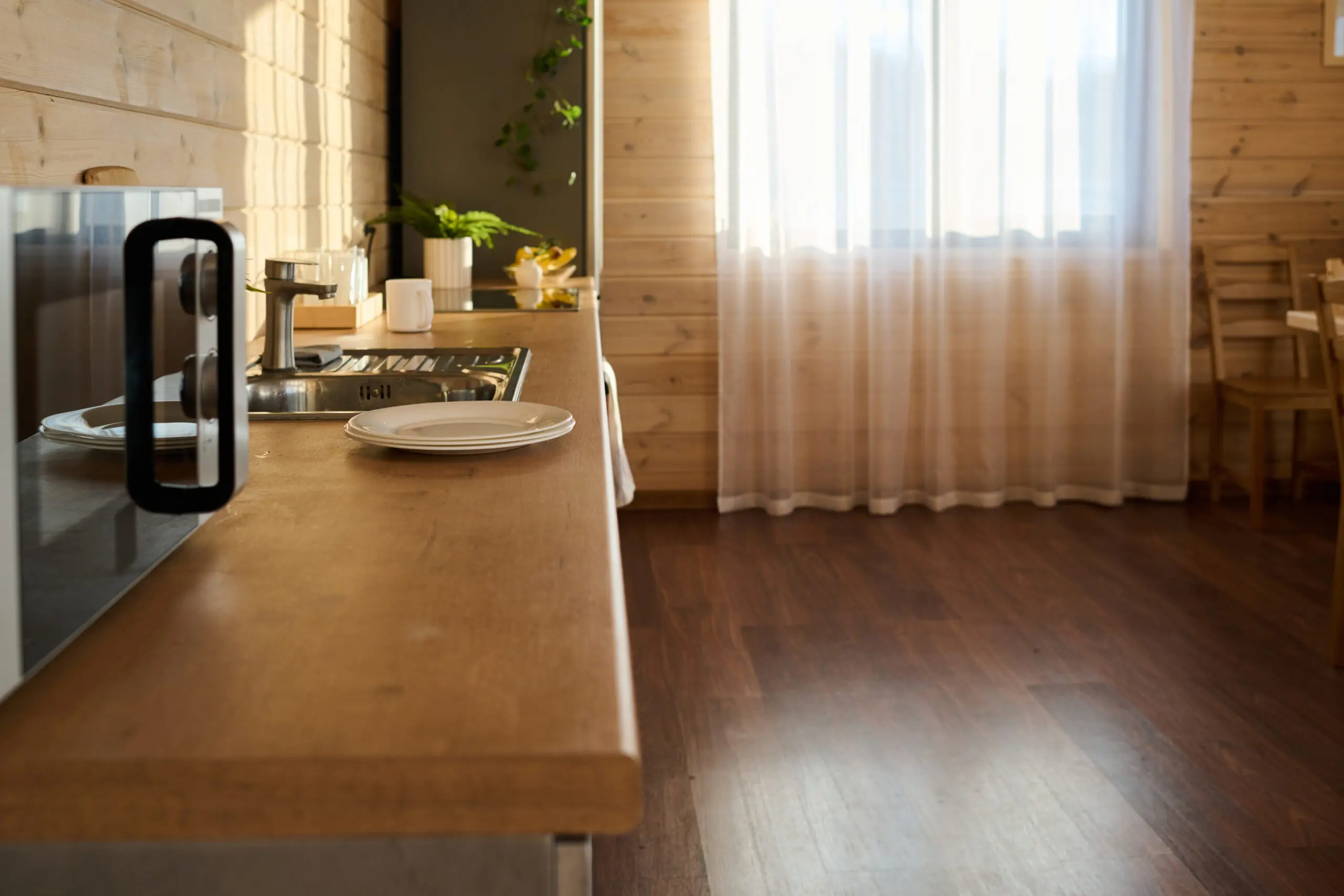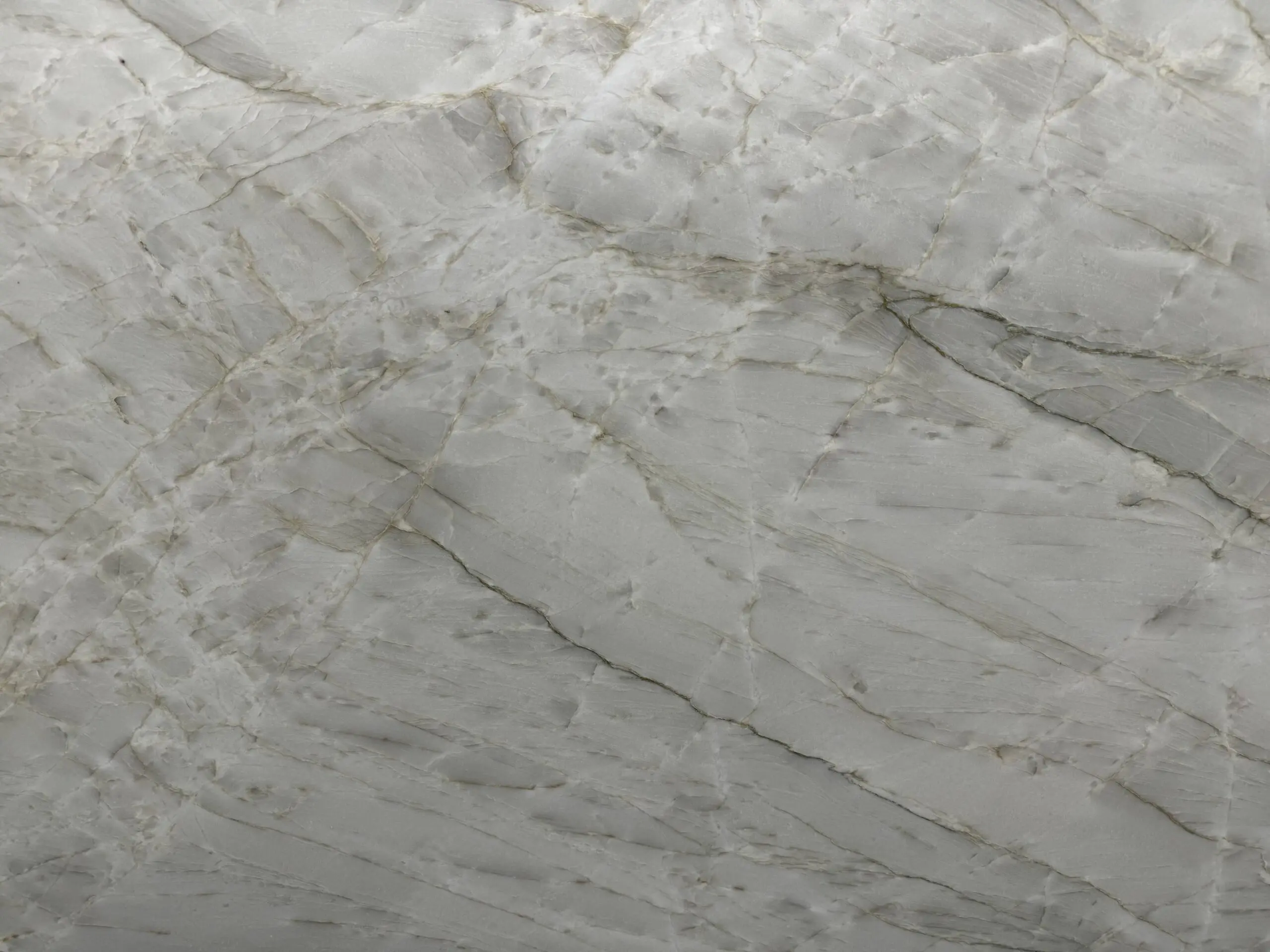Potential Health Impacts of Laminate Kitchen Countertops
Laminate kitchen countertops are popular for their affordability and wide range of colors and patterns. However, they may pose certain health risks due to the chemicals they contain, their surface structure, and maintenance difficulties, particularly when used over long periods. United Granite NJ cares about your well-being and aims to help you create a healthier kitchen environment. Let’s take a closer look at these potential health impacts and how laminate countertops can act as triggers for various health issues:
1. Volatile Organic Compounds (VOCs) and Formaldehyde Emissions
Laminate countertops are typically manufactured by coating wood particle boards with melamine or another plastic layer. These boards are held together with formaldehyde-based adhesives. Formaldehyde is one of the VOCs (volatile organic compounds) that may slowly release as gas over time, posing health risks.
- Short-Term Effects: Formaldehyde emissions can cause headaches, nausea, and irritation in the eyes, nose, and throat, especially in enclosed spaces. For some individuals, formaldehyde may also trigger allergic reactions, potentially worsening symptoms of asthma and respiratory conditions. United Granite NJ provides countertop options that are formaldehyde-free and VOC-safe, prioritizing indoor air quality for your home.
- Long-Term Effects: The World Health Organization (WHO) classifies formaldehyde as a potential carcinogen. Prolonged exposure can increase the risk of serious health conditions. United Granite NJ is committed to offering safe, natural stone alternatives that avoid such harmful substances and protect your long-term health.
2. Risk of Bacteria and Mold Growth
Laminate countertops, while durable, are more prone to scratches and wear than natural stones. Over time, this wear and tear can create micro-cracks and scratches on the surface, which can harbor bacteria and mold. United Granite NJ focuses on your hygiene and health by offering surfaces designed to resist bacteria and mold growth.
- Short-Term Effects: The bacteria that build up in cracks and scratches can spread across the countertop surface, potentially contaminating food during preparation. With United Granite NJ’s durable and hygienic surfaces, you can prepare food confidently, knowing you’re using a safe environment.
- Long-Term Effects: Constant exposure to bacteria and mold can worsen conditions like asthma, allergies, and respiratory diseases. Additionally, poorly maintained or damaged laminate countertops can increase the risk of fungal infections and other skin issues. United Granite NJ understands the importance of hygiene and offers alternatives that keep your kitchen safe and clean.
3. Heat Resistance Issues and Chemical Emissions
One of the health-related concerns of laminate countertops is their low heat resistance. Hot pans or pots placed directly on the surface can cause warping, melting, or bubbling, resulting in both aesthetic damage and the release of toxic fumes. United Granite NJ offers natural materials resistant to heat and free from chemical emissions to create a safer environment in your kitchen.
- Short-Term Effects: When plastic coatings melt, they release toxic fumes that can cause headaches, nausea, and dizziness. In homes with children or pets, these emissions pose an even higher risk. United Granite NJ’s solutions eliminate such risks by providing materials that are safe even at high temperatures.
Healthier, Natural Alternatives
If you want a healthier living space, consider durable, natural alternatives to laminate countertops. United Granite NJ is committed to your health, offering long-lasting and aesthetic countertop choices that protect your well-being over time:
- Natural Stone Countertops (Granite, Marble, Quartzite): At United Granite NJ, we recommend natural stone options for their durability, non-toxic properties, and resistance to bacteria growth. These countertops are highly resistant to scratches and wear, minimizing the risk of bacteria buildup and ensuring a hygienic surface.
- Quartz Countertops: Quartz countertops, composed of 90-95% natural quartz minerals, do not emit harmful chemicals. Their non-porous surface prevents bacterial and mold growth, ensuring a hygienic environment. United Granite NJ recommends quartz for a stylish and healthy living space.


